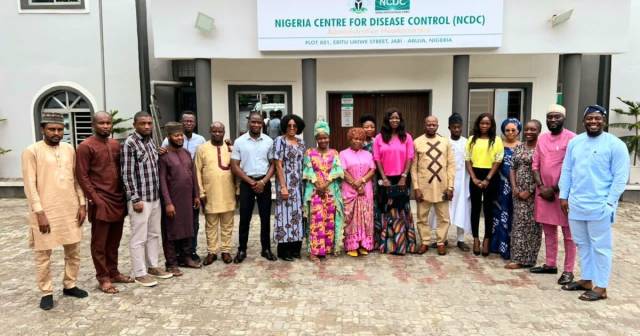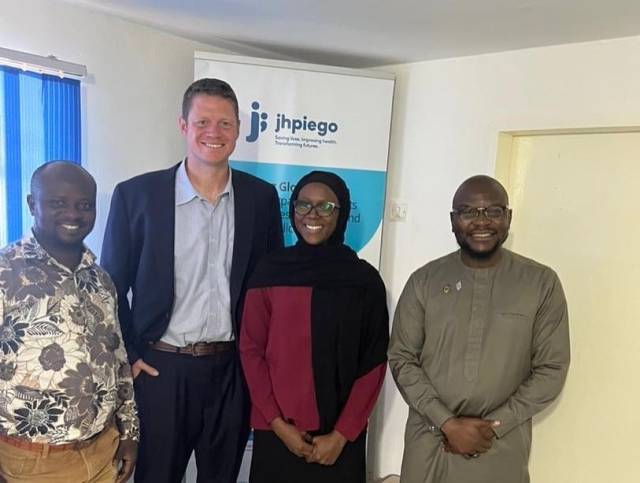You are here
Mentorship Enhances Surveillance Networks in West Africa
As the recent COVID-19, monkeypox and Ebola outbreaks have shown, information is vital for those tasked with preventing and responding to disease outbreaks. Through a project funded by Resolve to Save Lives, the U.S. Centers for Disease Control and Prevention (CDC) and the CDC Foundation have partnered to build event-based surveillance (EBS) capacity in Africa, using web-based information like news and social media to identify health risks early. This includes linkages to the Epidemic Intelligence from Open Sources (EIOS) system, an initiative of the World Health Organization (WHO) that seeks to bolster epidemic intelligence by using publicly available information to detect, verify and assess public health threats.
The EBS capacity-building project provides participating countries opportunities to collaborate, build learning networks and exchange lessons, including the use of systems such as EIOS. As partners in the project, the Nigeria Centre for Disease Control (NCDC), Sierra Leone Ministry of Health and Sanitation (SL MoHS) and the National Public Health Institute of Liberia (NPHIL) participated in peer-to-peer learning to share experiences and lessons learned from EBS implementation. During a June 2022 EBS technical assistance visit to SL MoHS, Larry Hinkle, MSPH, a CDC Foundation epidemiologist in CDC’s Global Disease Detection Operations Center (GDDOC), and Halima Muhammad, BSc, MPH, a scientific officer and EBS analyst at NCDC, collaborated to share lessons learned from NCDC and lead a Sierra Leone-Nigeria EBS collaboration day, which included presentations and conversations around EBS best practices in West Africa.
In August 2022, NCDC hosted EBS analysts from Sierra Leone and Liberia to exchange lessons learned from EBS. During this visit, analysts from both countries received an overview of EBS, learned how NCDC utilizes different systems in its EBS work, participated in the daily public health intelligence meeting and discussed challenges and lessons learned from NCDC’s EBS development. At the end of the visit, participants agreed to a weekly regional call to give updates on signals detected and share information.
Given the importance of information sharing in epidemic intelligence, these opportunities for enhancing cross-border lessons learned are vital to quickly detect and respond to outbreaks. As the EIOS network continues to grow and more countries come online, the hope is that there will be many more opportunities for this kind of peer-to-peer learning to grow regional epidemic intelligence networks.


